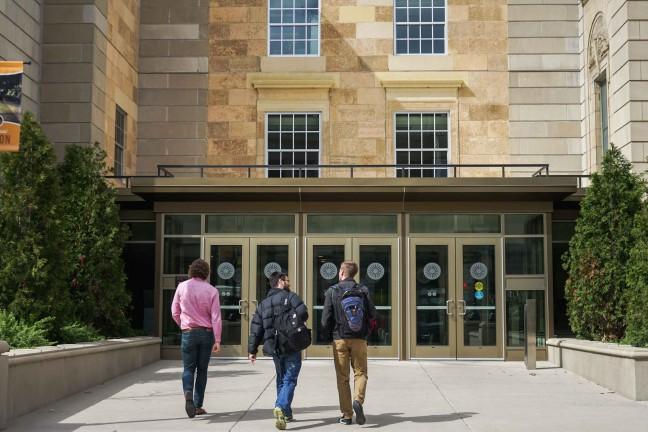Even in a non-pandemic year, students rely on late operating hours at campus libraries and Union buildings to study late into the night. The demand for late-night study spaces increases when the majority of students’ classes are held online. Students spend long hours here to escape their home desk or when they need quieter spaces to take an online exam.
But, UW has limited hours at the College Library, Memorial Library and both Union buildings during the pandemic. These limitations contradict the increased demand for study spaces when students are already missing out on the opportunity for in-person class engagement.
Campus libraries normally operate on a 24/5 schedule, where those behind on studying can stay until the early hours of the morning. These hours have been significantly reduced to close around 10 p.m. on weekdays and 5 p.m. on weekends. Similarly, the weekend Union hours have been shortened from 1 a.m. closing times on Friday and Saturdays and 12 a.m on Sundays to 8 p.m. every night.
With another hybrid semester in full swing, use these tips to stay motivated, practice self-care
These hour reductions relegate students to their dorm or apartment where productivity is lower. Libraries offer a break from cramped living quarters by providing quiet time in a group setting. Quiet policies enforced by library staff create a learning environment conducive to both long study hours and online classes.
Freshman Ishaan Chadha is now stuck doing most homework in his dorm room. Chadha said easy access to libraries is necessary to maintain study habits for long periods of time.
“Due to the library hours being restricted, I’ve found myself doing most of my work in my dorm room where I’m easily distracted,” Chadha said. “Whenever I’m at the library I go into this zone where I’m able to block everything out and just focus on my work. I miss spending hours at the library.”
Penalizing students for not attending class can negatively affect mental health
The shorter library hours are even more detrimental because the libraries can only be accessed by making an appointment far in advance. Students often book these appointments for long periods of time throughout the semester, leaving almost no way for a student to spontaneously go to the library at a reasonable hour.
Beyond quiet study spaces, Memorial Union and Union South are some of the few buildings on campus offering a place for safe student collaboration during the pandemic. Here, masked students can still interact with one another in a productive learning environment which can’t be replicated in online Zoom and BBCollaborate classes.
Closing these spaces at 8 p.m. every night prevents those with busy daytime schedules from accessing these spaces and creates a campus environment where students are encouraged to stay in one room to eat, sleep, take classes and complete all of their assignments.
UW’s plans for fall semester delusional, contradict existing COVID trends on campus
Freshman Maggie Khan said the new hours make it hard to find time to go to the library or Union where it is easier to complete assignments. Khan also said the school should consider changing these hours.
“The shorter hours conflict with my schedule and now I have less time to study in a productive environment. I think the school should go back to the regular hours,” Khan said.
These hour changes might have consequences that go beyond simply altering student study habits. Being unable to collaborate with others in a shared space and instead being forced to work alone at home can have major impacts on student productivity, creativity and innovation in the long run.
With new hybrid education, UW should implement more effective means of teaching
A large UW student body might fall behind in their economic potential during these crucial development years. Stanford economics professor Nicholas Bloom said in a news article working from home for long periods of time and losing in-person collaboration could be economically costly.
“I fear this collapse in office face time will lead to a slump in innovation,” Bloom said. “The new ideas we are losing today could show up as fewer new products in 2021 and beyond, lowering long-run growth.”
Shortening these hours makes little sense in a year when students are in even more need for shared studying spaces than a normal year. While hiring extra cleaning and operating staff for late shifts is cost-intensive, the school has minimal maintenance costs for the majority of classrooms not in use this year and are collecting normal tuition fees for online school.
UW must expand operating hours at campus libraries and Union buildings beyond their pre-pandemic levels to accommodate the heightened student demand for study spaces. Students are facing productivity roadblocks and mental health crises in a largely online campus — the least UW can do is hire a few more staff so we can sit among fellow students as we do our homework.
Will Romano ([email protected]) is a freshman studying economics and journalism.





















